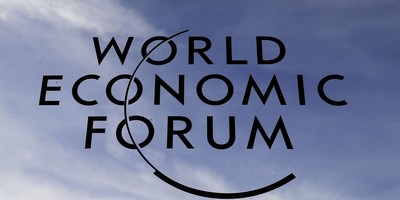Last year, I shared a very amusing Michael Ramirez cartoon showing Obama as the European lemming.
Today, Mark Helprin takes a much more serious look at the same issue in the Wall Street Journal, commenting on the wisdom (or lack thereof) of Obama’s interest in the European economic model.
Both in his re-election campaign and as the core principle of his presidency, Barack Obama asks America to cast off reliance on the free market—because, in his characterization, the free market “doesn’t work”—in favor of the European model of ever-tightening, ever-regulating, ever-expanding governance. This he does, astonishingly, at the very moment of the European model’s long-predictable crisis, collapse, bankruptcy, and devolution. With his trademark certainty he proposes—indeed, at times commands—that we follow him over the Niagara to which his back is turned. …Promiscuous endorsement of things European, inveterate in the president’s academic coterie, has long been characteristic of American snobs. …in suppressing and over-engineering their economies they court national bankruptcies. Just as reckless are their efforts to ameliorate economic stagnation via the all-guzzling welfare state. Shall we create more jobs by aping Europe, which since 1990 has averaged 9.16% unemployment while ours was 5.95%? …like the leaders of the bankrupt states of Europe, President Obama believes that the key to prosperity is to regulate, engineer, and direct the economy; to raise taxes; to augment the powers of government; to substitute collective largess for family cohesion; to spend money that does not exist… In short, the president and his progressives are chasing after a specter. Because the president is apparently repelled by the principles of the American Founding and lacks an alternative other than the European model, nothing else is in his quiver as he is driven by the dread of a future absent his omnipresent intervention.
Recommended
Needless to say (but I’ll say it anyhow), I concur. I’ve cited OECD data to show that America is much more prosperous than Europe’s welfare states. And I’ve participated in an online debate where I argued that Europe is in worse shape than the United States.
The World Bank also has produced research showing Europe falling behind, and there’s also been good analysis from Jim Glassman, Irwin Stelzer, and Constantin Gurdgiev. And here’s a very compelling video on Europe’s fiscal crisis.
Last but not least, here’s a chart posted on the Cato blog by my Cato colleague, Marian Tupy. It shows how
Europe’s growth rate has dropped with each passing decade.
In other words, the evidence is overwhelming. Europe is a model, but it’s a model of the policies to avoid, not the ones to emulate.
Let’s close with some humor. Here’s a post featuring a Hitler parody on the European downgrades, and here’s a list of ways to celebrate Europe Day.
I was more effusive in my comments about Senator Rand Paul’s budget, which limited the growth of the federal budget over the next 10 years to an average of 2.2 percent each year.
Now the Republican Study Committee from the House of Representatives has put forth a plan that also deserves considerable applause. Like Senator Paul, the RSC plan would impose immediate significant fiscal discipline such that spending in 2017 would be about the same level as it is this year.
Think of this as being similar to the very successful fiscal reforms of New Zealand and Canada in the 1990s.
After the initial period of spending restraint, the budget would be allowed to grow, but only about as fast as the private economy. This chart shows spending levels for the Obama budget, the Paul Ryan budget, the Rand Paul budget, and the RSC budget.
A couple of final points.
1. For all the whining and complaining from the pro-spending lobbies, the RSC budget is hardly draconian. Federal spending, measured as a share of GDP, would only drop to where it was when Bill Clinton left office.
2. One preferable feature of the Rand Paul budget is that the Kentucky Senator eliminates four needless and wasteful federal departments – Commerce, Education, Energy, and Housing and Urban Development. As far as I can tell, no departments are eliminated in the RSC plan. Also, Senator Paul’s plan is bolder on tax reform, scrapping the corrupt internal revenue code and replacing it with a simple and fair flat tax.
3. The RSC comes perilously close to winning a Bob Dole Award. The first chapter of their proposal fixates on symptoms of debt and deficits rather than the real problem of excessive government spending. Indeed, the first six charts all relate to deficits and debt, creating an easy opening for leftists to say they can solve the mis-defined problem with higher taxes.
There are lots of other details worth exploring, but the main lesson is that restraining spending is the key to good fiscal policy.
And that’s what’s happening. Indeed, the good news is that policymakers have proposed several budget plans that would shrink the burden of spending as a share of GDP. It’s refreshing to debate the features of several good plans (rather than comparing the warts in the competing plans during the big-government Bush years).
The bad news is that Harry Reid and Barack Obama will succeed in blocking any progress this year, so America will move ever closer to becoming another Greece.



























Join the conversation as a VIP Member